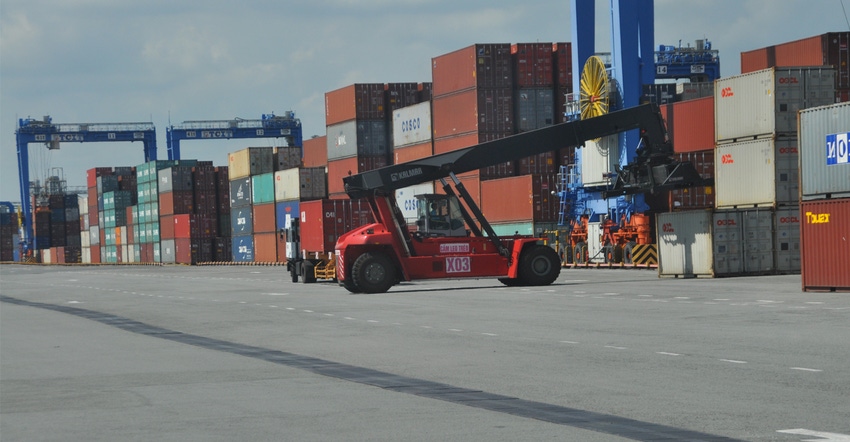June 3, 2019

Due diligence.
That term can best be described by telling a story. Deborah and I were visiting with a colleague on the phone, in conference call mode. He was responding to a specific question. As he gave the answer, Deborah instinctively began a search, and before the conversation was over, we had links to numerous reputable databases, verifying the subject matter in great detail.
I am always grateful my spouse has an inquiring mind, and she taught me well. It pays to be informed.
According to Merriam-Webster, the legal definition of due diligence is “such diligence as a reasonable person under the same circumstances would use: use of reasonable but not necessarily exhaustive efforts.” Expanded further, it would represent the care that a prudent person might be expected to exercise in the examination and evaluation of risks affecting a business transaction.
Such terms rarely find their way into conversations these days. That said, it should also be a common practice in other aspects of our lives, which, if left undone, can create serious harm for agriculture in America.
Consider the following:
Policy formation
During my years representing wheat growers in Kansas and on the national level, board members received invaluable training regarding the nature and seriousness of engaging in due diligence regarding the subject matter before making a decision.
Before presenting proposed legislation before Congress, common practice included engaging independent researchers specializing in forecasting economic analyses regarding the proposal in question.
Results of this research must pass credible scrutiny by peers and board members before submitting to Congressional members and staff. If it fails to support the legislation’s intent, we go back and change the proposal and researchers must find what the new proposal can do. This takes time, money and much effort to accomplish. But it is the only way to achieve desired results with any degree of confidence.
Political candidate selection
Regardless of political affiliation, agriculture has too much at stake to leave the selection process to current political machinery. Although much can be said about the need for change, change must first begin with a well-informed electorate utilizing well-documented concepts.
This does not mean we are willing to support a party platform which requires unquestioning sacrifices, as agriculture has been forced to do in the past. Back in the days of the Russian grain embargo, farmers declared, “never again!” We did not learn this lesson very well.
Sadly, most farmers my age and older who lived through it are either deceased or retired.
Question: who taught our successors these painful lessons? Apparently, no one. Those who grew up currently managing a farm have little knowledge of those events, and it took more than a decade to recover while Brazil rose up to become our biggest competitor.
Who knew at the beginning of this current trade war that the Midwest would become immersed, literally, in a perfect storm in 2019? Who knew the trade war would devastate an already devalued market going in? Who knew prevented plant acres would even exceed historical highs, by far? Who knew MFPs 1 and 2 might actually affect planting intentions? Some of these questions certainly offered credible answers, if the folks in charge were looking.
Back to the candidate — no candidate worth his or her salt should ever receive unqualified support without a firm, steadfast commitment to the principles of a free and fair global ag trade environment, which agriculture has fought for and invested millions of dollars to that end.
One signature on an executive order should never be allowed to destroy our export markets, short of an all-out hot war.
Media and agriculture
As we enter the danger zone once referred to as an election cycle, it is imperative that we are fully informed in all aspects of how media impacts our lives on the farm and in urban America. I applaud efforts by producers who immerse themselves in media training and work to understand the complexities of getting the message out in a way that non-farmers can relate.
It is not a common sight to see a farmer interacting with national media on CNBC's Squawk Box or MSNBC’s Morning Joe. More interviews need to be done. Just one note: Be yourself and tell your story. But first, be informed, engaging and respectful.
Finally, this election cycle may well become another global battleground, with outside organizations or nations seeking to spread more disinformation to influence the election.
New technology is emerging that can generate deepfake videos, which are manipulated digital videos that create fabricated images and sounds designed to seem realistic. For example, deepfake video can make it appear that a person said or did something that they did not. Deepfakes are difficult to distinguish from real-time recordings. Be aware, you may be viewing something that is not real.
Investigate before you shout “fake news!” Do not take your favorite media source’s assurances or allegations without question. We have the tools and resources at our disposal to verify.
Penner is a Marion County farmer and past president of the National Association of Wheat Growers. His email is [email protected].
About the Author(s)
You May Also Like




